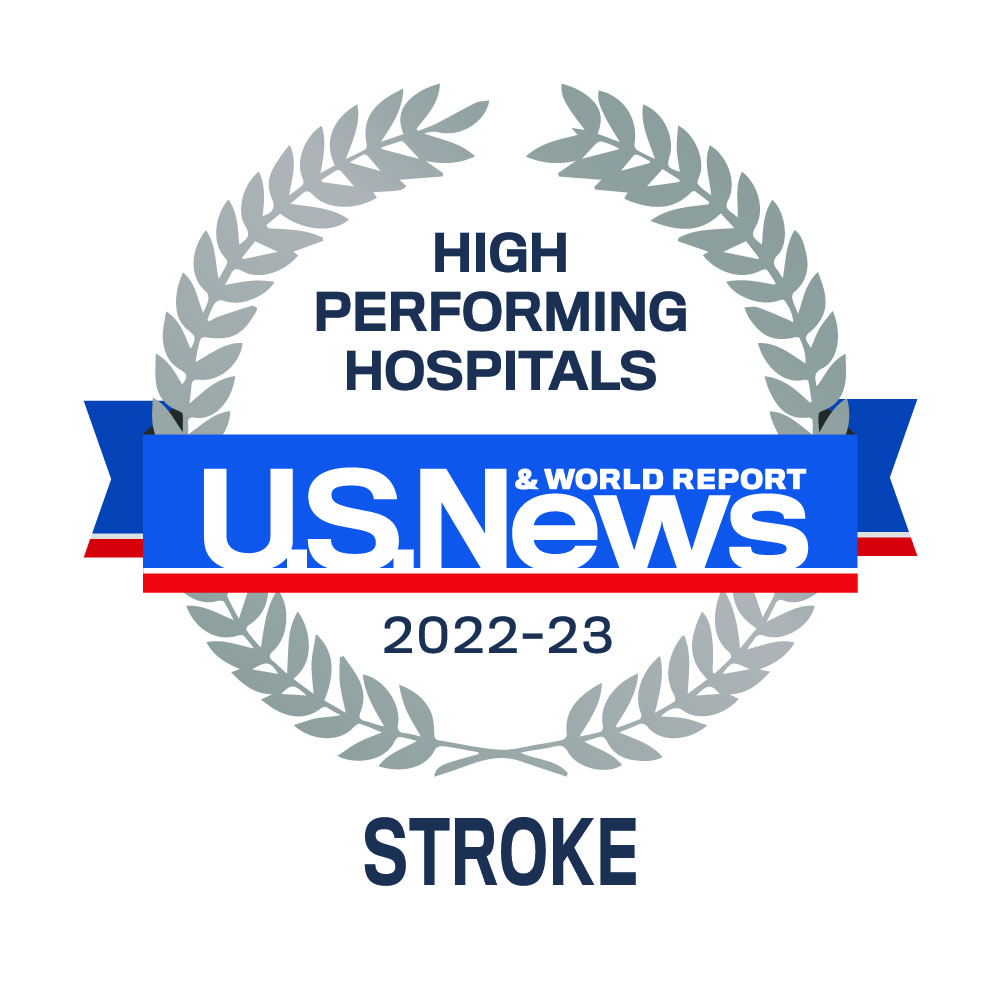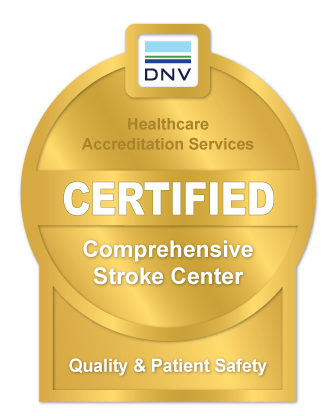Comprehensive Stroke Center
Stroke is a medical emergency that affects the brain. It is the fifth leading cause of death and is a leading cause of disability in the U.S., according to the Centers for Disease Control and Prevention. Healthcare professionals know that "time lost is brain lost," so it is critical to obtain medical care as soon as the signs of a stroke become apparent.
Stroke, or a disruption in blood flow to the brain, does not have to be fatal, and treatment within 60 minutes of the onset of a stroke can help prevent permanent disability. If you or someone around you shows signs of a possible stroke, call 9-1-1 immediately. If a patient is categorized as a "stroke alert," Emergency Medical Services will transport that patient to a designated stroke center for treatment.
 Stroke Risk Assessment
Stroke Risk Assessment
This health assessment can help you learn if you're at risk for a stroke.
Advanced Stroke Care
Wellington Regional Medical Center has earned numerous certifications, designations and awards for advanced stroke care:
-
 Named a 2022-2023 High Performing Hospital for Stroke by U.S. News & World Report, in recognition of care that was significantly better than the national average, as measured by factors such as patient outcomes.
Named a 2022-2023 High Performing Hospital for Stroke by U.S. News & World Report, in recognition of care that was significantly better than the national average, as measured by factors such as patient outcomes. -
 Received Comprehensive Stroke Center Certification from DNV, reflecting the highest level of accreditation for treatment of serious stroke events.
Received Comprehensive Stroke Center Certification from DNV, reflecting the highest level of accreditation for treatment of serious stroke events.
Rapid Stroke Response
When a "stroke alert" patient is transported to Wellington Regional Medical Center, members of a Stroke Alert Team work together to provide direct care to the patient, and assist the Emergency Department physician in a rapid examination, assessment and diagnosis. Teleneurology services may be used during this process.
Because "time is brain," a rapid response is essential for providing stroke patients with the best chance of recovery. Stroke is treatable, usually with a medication called tissue plasminogen activator (tPA) that helps break clots and can lessen the lasting effects of a stroke. The potential for the use of tPA is time-sensitive, so it is important to note the time the signs of stroke first appeared.
Wellington Regional Medical Center's goal in managing stroke patients is to improve neurologic recovery and help reduce the incidence of disability. The hospital's designation as a Primary Stroke Center shows that it offers high quality care to the community.
Stroke Recovery
Recovery from a stroke cannot be easily predicted and may be affected by a number of factors, including the rapidity of recovery after the symptoms began, the severity of the symptoms, the size of the stroke and the cause of the stroke. Only about 20 percent of stroke patients have near to full recovery.
Long-term treatment and care for stroke patients may include medication, physical therapy and changes in personal lifestyle (tobacco cessation, dietary changes, daily exercise, etc.). For most patients, this can be done through outpatient rehabilitation and coordinated care between the neurologist and a primary care physician, but may require some time in a rehabilitation hospital. Caseworkers can help patients and families through this process, because it is often family support that keeps the recovery process on track after a patient returns home.
Learn to BE FAST
If you think someone near you is having a stroke, every second counts. Know the warning signs, identify stroke and CALL 9-1-1 IMMEDIATELY. The acronym BE FAST can help you identify possible strokes:
B = BALANCE
Watch for a sudden loss of balance.
E = EYES
Check for vision loss.
F = FACE
Smile. Does one side of the face droop? Can you see the same number of teeth on each side of the face?
A = ARMS
Hold up both arms for 10 seconds. Does one drift downward?
S = SPEECH
Repeat a simple sentence. Is the speech slurred or strange? Can you understand the person?
T = TIME
If these signs are present, every second counts. Call 9-1-1 immediately.
Find a Doctor for Stroke Care
If you need a referral to a physician at Wellington Regional Medical Center, call our free physician referral service at 561-798-9880.

